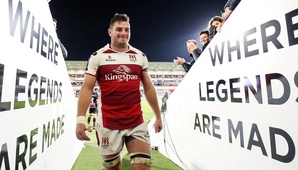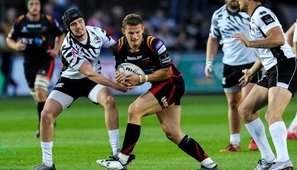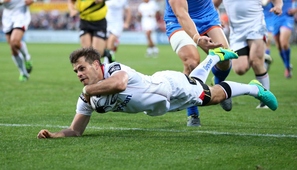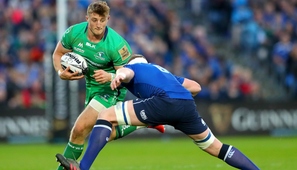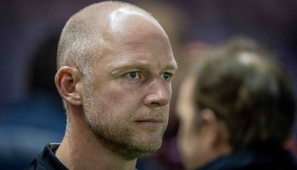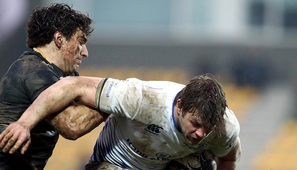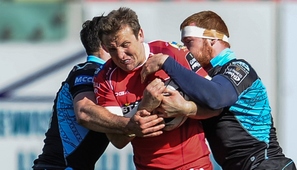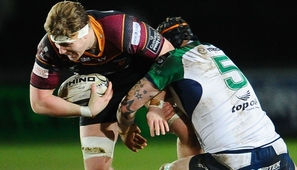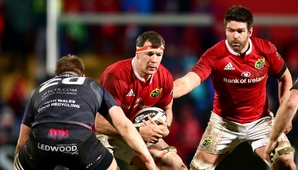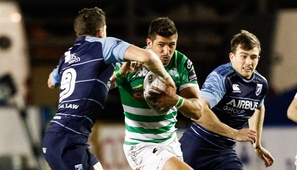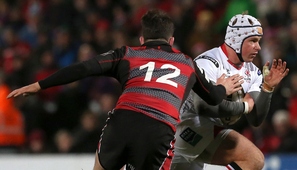Sean Fitzpatrick has good reason to be wary of the Welsh, an apprehension which comes from his father's experience of Cardiff more than half a century ago.
Brian Fitzpatrick's Test debut at the Arms Park on December 19, 1953 just happened to coincide with the only Welsh victory over the Kiwis for more than 70 years.
His son might have had that family history in mind in his refusal to consider the match a foregone conclusion. Wales' fall from grace during successive home defeats against Argentina and Samoa prompted Fitzpatrick to cite reasons why the All Blacks ought to be on their guard.
"Warren Gatland wasn't there," he said, referring to the Wales head coach and his absence from the last two match-days to be elsewhere watching contenders for the Lions tour of Australia.
"He will be back. The dropping to the bench of Wales skipper Sam Warburton, who has struggled for form with the Blues in the RaboDirect PRO12, is a further clue, I believe, that the Welsh are really setting their caps at the All Blacks.
"A one-off approach makes them even more dangerous. If they do well against the All Blacks, all that has happened before will be forgotten, even five straight losses."
Wales have tried 24 times to beat New Zealand since 1953 and lost every one. Ireland have managed one draw (10-10 in 1973), Scotland two (0-0 in 1964, 25-25 in 1983) and England have stacked up a grand total of five wins, most recently in Wellington in 2003, a few months before they won the World Cup
In contrast, Wales have been left to fret over three near misses, the first against Ian Kirkpatrick's All Blacks in 1972 when Phil Bennett's failed penalty with the last kick of the match allowed the tourists to get away with a 22-19 win.
A much closer shave followed back at the Arms Park six years later and Welsh fans have never forgiven Andy Haden for diving out of a line-out.
The All Blacks, under Graham Mourie, were losing 12-10 to a Welsh team handicapped by the retirements a few months earlier of Bennett, Gareth Edwards, Gerald Davies and Terry Cobner.
Roger Quittenton, the English referee, has always maintained he gave the penalty because of an offence by Geoff Wheel at the front of the line-out and that it had nothing to do with Haden's theatrics.
Brian McKechnie, substituting at full-back for an injured Clive Currie, made the most of the penalty, Wales lost and the circumstances of their defeat have been talked about ever since.
It wasn't the last time that New Zealand won in Cardiff by the narrowest of margins.
Eight years ago, during the early years of Richie McCaw's prodigious captaincy, Wales managed to interrupt a series of heavy beatings. They led 19-13 in the second half only to be undone by tries from Mils Muliaina and Joe Rokocoko. Even then McCaw still needed two late Dan Carter penalties to squeeze his team home by a point, 26-25.
Perhaps it was that brand of Welsh bravery which Fitzpatrick has in mind as well as his admiration for the brand of rugby Warburton's team produced in almost going the full distance at the World Cup last year. And, of course, it always helps to have a rough idea of what might be coming.
Fitzpatrick's father and his All Black contemporaries of long ago knew exactly what was coming their way in 1953. Four weeks earlier they had lost 8-3 to Cardiff at the Arms Park, a setback which prompted New Zealand's most famous rugby journalist, the late T P McLean, to record for posterity that 'the fault was not entirely theirs.'
According to McLean, the man in the middle, Dr Peter Cooper of the RFU, 'refereed the Cardiff match in such a state of excitement that he permitted Sid Judd, the Cardiff loose forward, to sit at the back of the All Blacks' scrum between the number 8 and the scrum-half without penalising him'.
Six of the Cardiff team lay in ambush when the tourists returned for the Test against Wales at the same venue four weeks later, December 19, 1953.
Judd's opening try would have left Bob Stuart and his men labouring under an overpowering sense of déjà vu before Ken Jones, the Olympian on the right wing, finished them off thanks to Clem Thomas' cross-kick from the touchline.
And Wales have not beaten New Zealand since. The All Blacks have made them pay a fearful price over the course of six decades and if Saturday's result is any different to the previous 24, then it will go down as the upset of the century…
How they lined up when Wales last beat the Kiwis:
Wales:
G Williams (London Welsh); K Jones (Newport), G Griffiths (Cardiff), B Williams, capt (Cardiff), G Rowlands (Cardiff); C Morgan (Cardiff), R Willis (Cardiff); W Williams (Swansea), D Davies (Somerset Police), C Meredith (Neath); R Stephens (Neath), R John (Neath); S Judd (Cardiff), J Gwilliam (Gloucester), C Thomas (Swansea).
Tries: S Judd, K Jones. Conversions-G Rowlands 2. Penalty-G Rowlands.
New Zealand:
B Scott (Auckland); A Elsom (Canterbury), J Tanner (Auckland), B Fitzpatrick (Wellington), R Jarden (Wellington); L Haig (Otago), K Davis (Auckland); K Skinner (Otago), R Hemi (Waikato), I Clarke (Waikato); R White (Poverty Bay), G Dalzell (Canterbury); B Stuart, capt. (Canterbury), W McCaw (Southland), B Clark (Wellington).
Try- B Clark. Conversion-R Jarden. Penalty-R Jarden.













